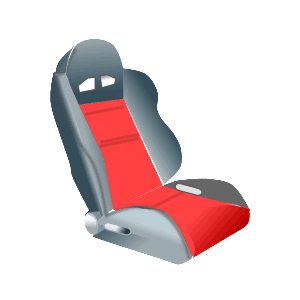AN ACT TO AMEND THE CODE OF LAWS OF SOUTH CAROLINA, 1976, BY ADDING SECTION 56-5-3890 SO AS TO DEFINE CERTAIN TERMS RELATED TO THE USE AND OPERATION OF A WIRELESS ELECTRONIC COMMUNICATION DEVICE, TO PROVIDE THAT IT IS UNLAWFUL FOR A PERSON TO USE A WIRELESS ELECTRONIC COMMUNICATION DEVICE TO COMPOSE, SEND, OR READ A TEXT-BASED COMMUNICATION WHILE OPERATING A MOTOR VEHICLE ON THE PUBLIC HIGHWAYS OF THIS STATE, TO PROVIDE EXCEPTIONS TO THIS PROHIBITION, TO PROVIDE A PENALTY FOR A VIOLATION OF THIS SECTION, TO PROVIDE THAT A VIOLATION OF THIS SECTION MUST NOT BE INCLUDED IN THE OFFENDER’S MOTOR VEHICLE RECORD OR REPORTED TO HIS MOTOR VEHICLE INSURER, TO PROVIDE THAT LAW ENFORCEMENT OFFICERS SHALL ISSUE ONLY WARNINGS FOR VIOLATIONS OF THIS SECTION DURING THE FIRST ONE HUNDRED EIGHTY DAYS AFTER ITS EFFECTIVE DATE, TO PLACE CERTAIN RESTRICTIONS ON LAW ENFORCEMENT OFFICERS WHO ENFORCE THIS SECTION, TO REQUIRE THE DEPARTMENT OF PUBLIC SAFETY TO MAINTAIN STATISTICAL INFORMATION REGARDING CITATIONS ISSUED PURSUANT TO THIS SECTION, AND TO PROVIDE THAT THIS SECTION PREEMPTS ALL ORDINANCES, REGULATIONS, AND RESOLUTIONS ADOPTED BY LOCAL GOVERNMENTAL ENTITIES REGARDING PERSONS USING WIRELESS ELECTRONIC COMMUNICATION DEVICES WHILE OPERATING MOTOR VEHICLES ON THE PUBLIC HIGHWAYS OF THIS STATE.
Be it enacted by the General Assembly of the State of South Carolina:
Unlawful use of a wireless electronic communication device while operating a motor vehicle
SECTION 1. Article 31, Chapter 5, Title 56 of the 1976 Code is amended by adding:
“Section 56-5-3890. (A) For purposes of this section:
(1) ‘Hands-free wireless electronic communication device’ means an electronic device, including, but not limited to, a telephone, a personal digital assistant, a text-messaging device, or a computer, which allows a person to wirelessly communicate with another person without holding the device in either hand by utilizing an internal feature or function of the device, an attachment, or an additional device. A hands-free wireless electronic communication device may require the use of either hand to activate or deactivate an internal feature or function of the device.
(2) ‘Text-based communication’ means a communication using text-based information, including, but not limited to, a text message, an SMS message, an instant message, or an electronic mail message.
(3) ‘Wireless electronic communication device’ means an electronic device, including, but not limited to, a telephone, a personal digital assistant, a text-messaging device, or a computer, which allows a person to wirelessly communicate with another person.
(B) It is unlawful for a person to use a wireless electronic communication device to compose, send, or read a text-based communication while operating a motor vehicle on the public streets and highways of this State.
(C) This section does not apply to a person who is:
(1) lawfully parked or stopped;
(2) using a hands-free wireless electronic communication device;
(3) summoning emergency assistance;
(4) transmitting or receiving data as part of a digital dispatch system;
(5) a public safety official while in the performance of the person’s official duties; or
(6) using a global positioning system device or an internal global positioning system feature or function of a wireless electronic communication device for the purpose of navigation or obtaining related traffic and road condition information.
(D)(1) A person who is adjudicated to be in violation of the provisions of this section must be fined not more than twenty-five dollars, no part of which may be suspended. No court costs, assessments, or surcharges may be assessed against a person who violates a provision of this section. A person must not be fined more than fifty dollars for any one incident of one or more violations of the provisions of this section. A custodial arrest for a violation of this section must not be made, except upon a warrant issued for failure to appear in court when summoned or for failure to pay an imposed fine. A violation of this section does not constitute a criminal offense. Notwithstanding Section 56-1-640, a violation of this section must not be:
(a) included in the offender’s motor vehicle records maintained by the Department of Motor Vehicles or in the criminal records maintained by SLED; or
(b) reported to the offender’s motor vehicle insurer.
(2) During the first one hundred eighty days after this section’s effective date, law enforcement officers shall issue only warnings for violations of this section.
(E) A law enforcement officer shall not:
(1) stop a person for a violation of this section except when the officer has probable cause that a violation has occurred based on the officer’s clear and unobstructed view of a person who is using a wireless electronic communication device to compose, send, or read a text-based communication while operating a motor vehicle on the public streets and highways of this State;
(2) seize, search, view, or require the forfeiture of a wireless electronic communication device because of a violation of this section;
(3) search or request to search a motor vehicle, driver, or passenger in a motor vehicle, solely because of a violation of this section; or
(4) make a custodial arrest for a violation of this section, except upon a warrant issued for failure to appear in court when summoned or for failure to pay an imposed fine.
(F) The Department of Public Safety shall maintain statistical information regarding citations issued pursuant to this section.
(G) This section preempts local ordinances, regulations, and resolutions adopted by municipalities, counties, and other local governmental entities regarding persons using wireless electronic communication devices while operating motor vehicles on the public streets and highways of this State.”
Time effective
SECTION 2. This act takes effect upon approval by the Governor.
Ratified the 5th day of June, 2014.
Approved the 9th day of June, 2014. — S.





